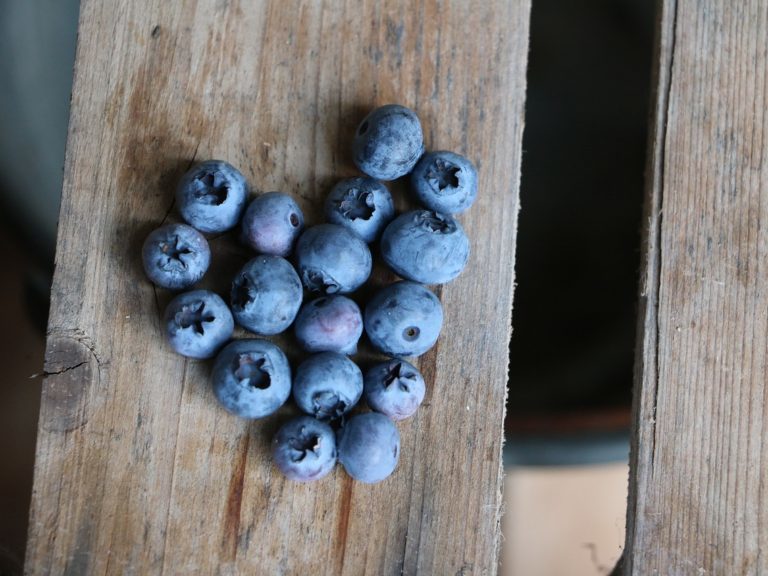Homemade Fertilizer for Blueberries
When growing blueberries, you’ll want to avoid as many chemicals as possible. You don’t want the chemicals leeching into the food you’re going to feed your family. Fortunately, blueberries do quite well with homemade fertilizers. In fact, you probably already have many of the ingredients needed to produce the best tastings blueberries in your home.
Test the Soil
Blueberries thrive in acidic soil. Check the pH level of the soil your blueberry bushes are living in by using a soil pH testing kit, which can be purchased at most garden centers. The optimal pH level for blueberries is 4.0 to 5.5, which is considered to be very acidic in gardening terms. While some blueberry bushes tolerate slightly higher pH levels, the bush does not perform optimally. If the soil has a pH above 5.5, you need to acidify the soil for your blueberry bushes, says the University of Minnesota Extension.
A soil additive, such as sulfur, acidifies soil and is readily available at garden centers. Or, you can use household vinegar to acidify soil to keep your blueberry bushes healthy. Mix 1 gallon of water with 1 cup of plain white vinegar, and spray the soil around the blueberry bushes until the ground is wet but not saturated. Retest the soil 12 to 24 hours after applying the vinegar. Repeat the process until the appropriate pH is achieved.
An Abundance of Nitrogen
Blueberries do not require much in the way of fertilizer, but one nutrient they require in abundance is nitrogen. Coffee grounds are a good source of nitrogen for blueberry bushes, says the University of Minnesota Extension, so don’t throw away your grounds next time you make a pot of joe. To fertilize the soil, simply sprinkle 4 or 5 cups of coffee grounds around the ground beneath each blueberry bush, then rake the coffee grounds into the top layer of soil. This can be done at any time of day and can be repeated every two to four weeks or as necessary.
Nourishing Organic Matter
In their natural wooded habitats, blueberry bushes receive plenty of nourishment through organic matter that finds its way onto the ground. Substances such as decaying plants, animal bones and leaves make the soil rich in organic matter, which blueberries need to be healthy. At home, the leaves that tumble from trees during the fall season can be crushed and worked into the topsoil around the blueberry bushes with a hand or soil rake.
Pine sawdust or wood chips can also be worked into the soil for added organic matter if you happen to have any on hand. A 3-inch-thick layer of leaves or sawdust promotes a healthy blueberry bush. The organic matter can be applied annually in the springtime after the first application, which can occur at any time.
Other Important Considerations
If a blueberry bush is already healthy and yielding fruit, it doesn’t need to be fertilized. In most cases, blueberries thrive without much fertilization and require very few added soil nutrients. Aside from additional organic matter and nitrogen, blueberry bushes usually can get all of the nutrients they need to thrive from the existing soil.
Read more:






